All unpicked at The World Education Summit 2022.
The best strategic leaders always have one eye on the future. At what lies on the horizon. Here we give you a pick of some of what the future holds.
1-Learning First
Over 26,000 from across the world have said what they think about learning. The conclusions are staggering. We must put Learning first for students, schools and accountability. We need to expand the horizons of learning to include social and emotional, learner agency – not just a simple transmission knowledge model that quells creativity – Moving from Surface to Deep and developing high impact learners. We need to put learning first in developing staff, inspecting schools. See the whole of the Summit – Learning first permeates all stages, all sessions, all speakers, all schools
2-Democratisation of Learning
It is a sad irony that in most democratic countries in the world that children start life in one of the least democratic of institutions. Only in 1 in 10 schools do children feel they have a voice in their own learning. In far too many feedback is one way and judgemental. The problem is that this dictates a power relationship that sees the learner as the problem and disempowers them, too often undermining their trust in education to deliver the promised fruits. Add the inbuilt unconscious bias, demonstrated to proliferate in schools, and, it is a recipe for exclusion. The Jenkins curve suggests the by the age of 13 only 36% of children actually want to be in schools.See Gwyn ap Harris, XP School, UK, Chhavi Khandelwal, Bhavi Doshi, Deborah Meier, Professor Yong Zhao, Dr Tony Wagner
3-Social Emotional Learning (SEL)
For too long SEL has been a bolt on. Its development confined to PSE and life skills. Out of context and treated as a non-essential. Yet we know from research that the collective out-performs the individual. Those individuals struggling with self-efficacy need high collective efficacy around them to lift. And that the most important skill to thrive in the collective is social sensitivity. Searching for academic buoyancy and embrace the emotional and well as cognitive approach to learningAnd we can also turn to the growing science around kindness. See Andreas Schleicher, Prof John West Burnham, Dr Jenni Donohoo, Crystal Green, HundrED, Training Stage focus – Will Ord, Pepys McRea, Steve Ingle
4-Learning Strategies
Schools have long been aware that to get the best grades pupils need study and revision techniques. Most teachers teach these and use homework for deliberate practice. Yet in most countries half the pupils leave perceiving themselves as having failed. Time for a rethink. What if children already had inbuilt learning strategies and it was the job of teachers and learning support assistants to find these and hone them. John Hattie and his team have identified 450 different learning strategies and found that most learners use between 1 and 3 of them for most tasks. (And the combinations they use are as individual as the learners). This exciting new area of research may help equip those who struggle with just the one.. and give up too easily of it does not work. See John Hattie, Prof Sugata Mitra, Belinda Crowhurst, Wendy Delf, Craig Parkinson, Martin Morgan , Mark Burns, Judy Pitt, Kate Jones, Steve Ingle
5-Embracing errors and mistakes
Half the children in the Learning Survey viewed errors and mistakes as sources of humiliation. Both from their peers and their teachers. Yet surely mistakes lie at the hinge point of learning. FAIL became First Attempt In Learning.How do we move this from being mere rhetoric to a genuine openness to learning and a curiosity for feedback? We need to begin by embracing and modelling it as leaders and teachers. To take away the stigma and recognise the epiphany Carol Dweck had, not as a blunt tool, but as an incisive technique for managing moments of maximum adversity. See Stephen Cox, Anne-Marie Duguid, Shirley Clarke, Barbara Blackburn, Jon Dunlosky, Ron Berger, Doug Fisher and Nancey Fry, Mishaps and Mistakes interviews with leaders – led by Diana Osagie and Anne-Marie Duguid
6-Equity – Techquity
The 50 year Ed Tech revolution has overpromised and under delivered on learning gains. It may best now turn its attention to levelling up the playing field.Equity is about everyone having access to what they need to succeed. Covid and home learning exposed wide gaps in equity. We can use this knowledge to ensure technology is an enabler and not a block to equity. See Techquity panel, Fiona Aubrey-Smith, Rose Luckin / Ken Shelton/Raya Bidshahri/ Sugata Mitra / Ken Shelton, Avis Glaze, Hannah Wilson, Dr Emily Meadows, Shonagh Reid, Dr Nneka Johnson, Dr Rosa Perez-Isiah , Alysa Perreras Nadia Lopez, Rosemary Campbell-Stephens MBE, Alex Brooker, Bena Kallick and Professor Art Costa
7-World Class Initial Teacher Education
What are the key elements of world class initial teacher education and how do we make it happen globally? How do we achieve ITE learner first practice? Very few of the world’s educator qualifying institutions (7 from 17,500) lay claim to being world class. The average competency of newly qualified teachers entering schools in developed countries is around 44%. They improve over the first two years and then seem to flatline. What do those world class institutions do differently? They engage with schools in a way that everyone becomes a learner. And they train new teachers to evaluate their impact on learning. See Prof Janet Clinton, Prof Field Ricard, The Big Debate (Husbands, Ricard and Darling-Hammond), Teach for All Panel – Reuben Moore, Charlotte Iraguha, Mavie Ungco, Ángela Caviedes, Rachel Lofthouse
8-Contribution Science
Wellness and Mental Health have grown in emphasis. Poor wellness and mental health block learning and undermine resilience. Whilst ACE’s (Adverse Childhood Experiences) cannot be stopped there is much we can do. Treating these on an individual basis is very demanding of resources and time. The emergence of contribution science shows how collaboration and connection to wider society and groups can help grow wellbeing. Pioneering work in New Zealand and US have combined contribution theory with learning to produce very exciting results. As part of this the Curriculum needs to change and emerge. A quest for belonging and becoming with diverse approaches to supporting the development of effective citizenship and identity forming that is locally relevant and globally meaningful. See Dr Joanne McEachen, Dr Sonny Magana, Kindness and wellbeing: Andy Hargreaves and Dennis Shirley, Professor Robin Banerjee, Dan Siegel, Dr Michele Borba, Curriculum: Vikki Pendry, Vishal Talreja, Professor Kai-ming Cheng,Tizie Maphalala, Lucy Crehan, Santiago Sueto Caballero, Professor Mark Priestley, Professor Daniel Alvunger, Professor Stravoula Philippou, Tiina Soini, Roy Leighton and Narinder Gill, Ty Golding and Dr Debra Kidd, Mary Myatt and John Tomsett
9-The Leadership Climate challenge
Beyond the global parapet, beyond best endeavours. Whilst we think we are open to learn we are often closed to learn and there is little evidence of impact in current leadership programmes. We will lift your head above the parapet and show you a different horizon – feeding your thirst for knowledge, insight and learning. Imagine if all leaders were leaders of learning. In the best rated quartile (Learning Survey) of schools for culture and climate for learning are rated twice as highly as those of the least rated quartile. ‘Trust building over school building’ is a growing mantra. But what does this look like in practice? How important is it to look at what was missing when the pandemic struck – what ifs can now become what now. To lead through adversity embraces strong relationships and striving for collective efficacy. Focus on the right things rather than the distractions. Value an equitable culture, create more equitable and inclusive classrooms and reach for Greatness. There is great power in everyday heroes. See Professor Yong Zhao, Sekiichi Kato, Drew Povey, Michael Rosen, Jaz Ampaw-Farr, Michele Borba, Steve Munby, Liz Robinson, Kakenya Ntaiya, Deborah Meier, Eric Jensen, Alma Harris, Becky Allen , David Weston, Dr Eric Jensen, John West-Burnham and Malcolm Groves, John Hattie, James Dalziel, Jenni Donohoo, Peter de Witt, Todd Whitaker, Training stage: TES Middle Leaders clinic : Liz Free, Andy Griffiths, Mark Enser, Oanh Crouch
10-Collective assessment
Moving from formative – summative debate to the collective. Our systems have failed. COVID has given us an opportunity to do something brave and creative and that will be meaningful. Let’s not waste this opportunity. The best new ideas from around the planet. Covid exposed the key issues of equity and disengagement in learning directly caused by high stakes testing. Here we explore the alternatives. External examinations produce winners and losers. Children who perceive themselves as failures and simply avoid re-engaging in learning for many, many, years. Even accurate tests produce a backwash of perverse incentives. Often accountability and fear have caused some unhealthy behaviours and action. Teaching to the test, performance and obsessions with surface knowledge have become the result. It doesn’t have to be this way. Here we seek out the best new assessment practices from around the world. See Shirley Clarke, Sugata MItra, Dylan Wiliam, Rosie Clayton, Rosie Clayton, Bill Lucas, Peter Hyman
If you would like to discuss these pledges further or how you can work with us on fulfilling some of the pledges, please fill out our contact form.



